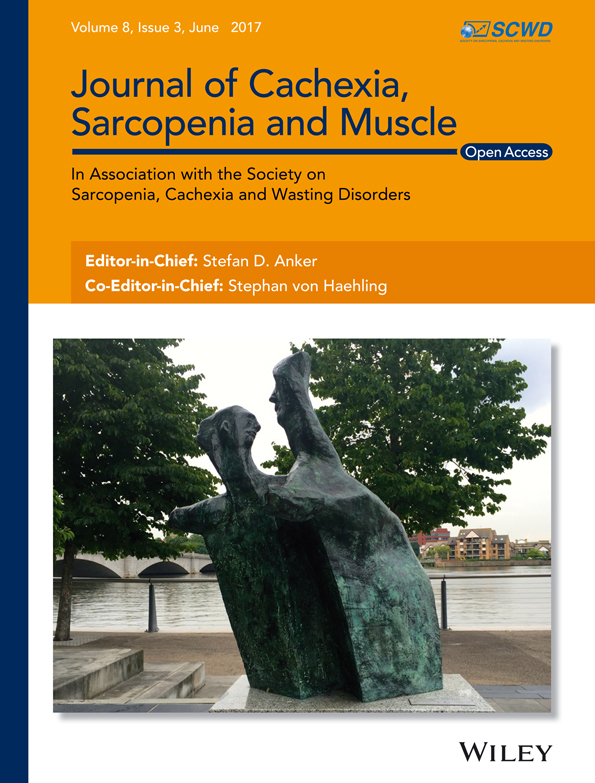Single-nucleotide polymorphisms in cachexia-related genes: Can they optimize the treatment of cancer cachexia?
Cancer cachexia is a complex syndrome, characterized by weight loss consisting of skeletal muscle loss and adipose tissue wasting, leading to poor outcomes.1 There are no established treatments for cancer cachexia, although recent pre-clinical and clinical studies have shown the promising effects of several agents including ghrelin,2 myostatin/activin pathway antagonists,3 androgenic steroids and selective androgen receptor modulators,3 megestrol acetate,4 trimetazidine,5 espindolol,6 and diamino-diphenyl sulfone7 on muscle wasting.
In this study, Johns et al.8 have suggested that single-nucleotide polymorphisms (SNPs) in the angiotensin-converting enzyme (ACE) and tumour necrosis factor (TNF) genes are associated with the development of cancer cachexia, defined by weight loss and low skeletal muscle index. From the viewpoint of treatment as well as pathogenesis of cancer cachexia, these findings are of great importance. Regarding the SNPs in the ACE gene, rs4291 was associated with hypertension, and it might modify the antihypertensive effect of ACE inhibitors.9 On the other hand, several epidemiological studies have suggested that taking ACE inhibitors was associated with preserved muscle mass and strength.10 Based on these findings, it is worth investigating the relationship among the SNPs in the ACE gene, the usage of ACE inhibitors, and muscle wasting in patients with cancer cachexia. Regarding the SNPs in the TNF gene, rs1799964 was a risk factor for the development of cardiovascular disease.11 However, no research has been published to examine the association between SNPs in the TNF gene and anti-TNF therapy as yet, although several anti-TNF antibody therapies have been approved for the treatment of inflammatory diseases such as rheumatoid arthritis and Crohn's disease.12, 13
Hereafter, more SNPs related to cancer cachexia could be found, which would help establish novel therapies of and predict therapeutic efficacy for cancer cachexia.
Acknowledgements
We acknowledge the support by the German Research Foundation and the Open Access Publication Funds of the Gottingen University. The authors certify that they comply with the ethical guidelines for authorship and publishing of the Journal of Cachexia, Sarcopenia and Muscle.14




